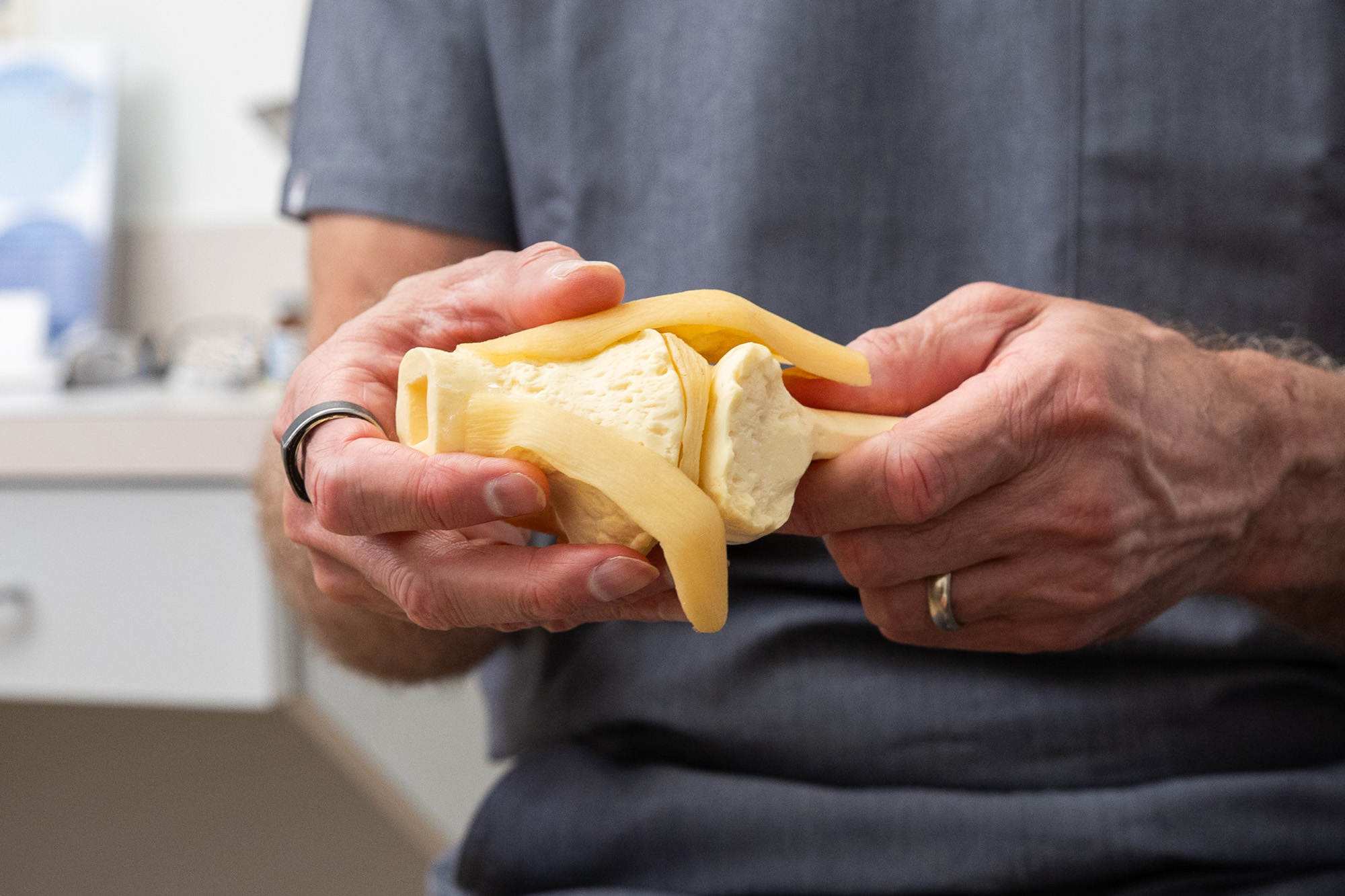Pentosan injections contain a synthetic compound derived from beechwood trees. This compound acts as a natural anti-inflammatory while stimulating blood flow. Most importantly it stops cartilage from being broken down by enzymes in the body. These actions help ease and can even resolve the pain caused by osteoarthritis.
What Is Pentosan Used For?
Pentosan injections are derived from a compound found in Beechwood trees. It is used to treat osteoarthritis and rheumatoid arthritis. When you visit InterveneMD, our experts can provide relief with Pentosan in Charleston.
- Offers help with osteoarthritis of the knee and other joints
- Reduces bone-on-bone pain
- Improves blood supply
- Decreases inflammation
- Regenerates cartilage
- Helps degenerative disc disease
- Reverses heart disease
- Has anti-cancer and anti-viral properties

The Origins of Pain
Pentosan injections relieve pain and reduce inflammation at the source by stimulating blood flow
Thickening joint fluid for better cushioning and breaking down destructive enzymes that create pain and cause cartilage loss.
InterveneMD offers Pentosan in Charleston as a component of our comprehensive treatment of chronic pain.



Pentosan Injection Advantages
Low Risk
Pentosan injections are extremely safe, You may have some bruising at the injection sites as the drug possesses mild blood-thinning properties.
Results That Work
Clinical studies show that Pentosan injections provide marked improvement in arthritis symptoms.
Targeted Treatment
By using Pentosan injections, patients may experience relief far sooner than if they were taking medications. Doing what current medications on the market cannot, Pentosan also reverses or slows the disease process itself.
Discover Your Path to Longevity
Our online treatment planner matches you with
personalized recommendations based on your goals.



Todd Joye, MD, Owner of InterveneMD
20 years of experience practicing ortho/spine medicine
Post-Treatment Goodies
- You might experience slight tenderness in the affected area for up to 24 hours. Bruising at the injection is also possible.
- Massage the injection site for 2 minutes after the injection and apply ice packs if necessary for any soreness.


Support Where You Need It
Move It
One of the magical ways to keep yourself youthful is by moving. We know the ways to sustain and even heighten your mobility.
Wellness
InterveneMD prioritizes alternative methods to not only relieve undesirable symptoms, but to prevent them in the first place.
Best Living
Don’t give up the things you love to do. Aging shouldn’t mean doing without. Continue performing your favorite activities with injections of Pentosan in Charleston.
Get started with InterveneMD and take the first step towards living a fuller, healthier life.

Frequently Asked Questions
Downtime is not required; however, some patients rarely require a dose of an antihistamine 30 min prior to the injection to avoid any allergic reaction at the injection site.
The effects from your injection will last somewhere between 6 months and 1 year.
Yes! You will be self-administering Pentosan injections in the comfort of your own home, and can resume normal activities immediately.
Pentosan injections benefit osteoarthritis of the knee (bone-on-bone friction) by decreasing inflammation, regenerating cartilage, and improving blood supply. Recent research has also found that Pentosan may improve degenerative disc disease, reverse heart disease and possess anti-cancer and anti-viral properties.
Step into InterveneMD, where science and rejuvenation converge. Experience revitalizing treatments and personalized care that help you enhance your daily living and experience lifelong vitality. InterveneMD offers advanced treatments from hormone optimization and shockwave therapy to Vasper exercise and prolotherapy. We explore functional medicine to provide patients with unmatched access to an empowered future.








